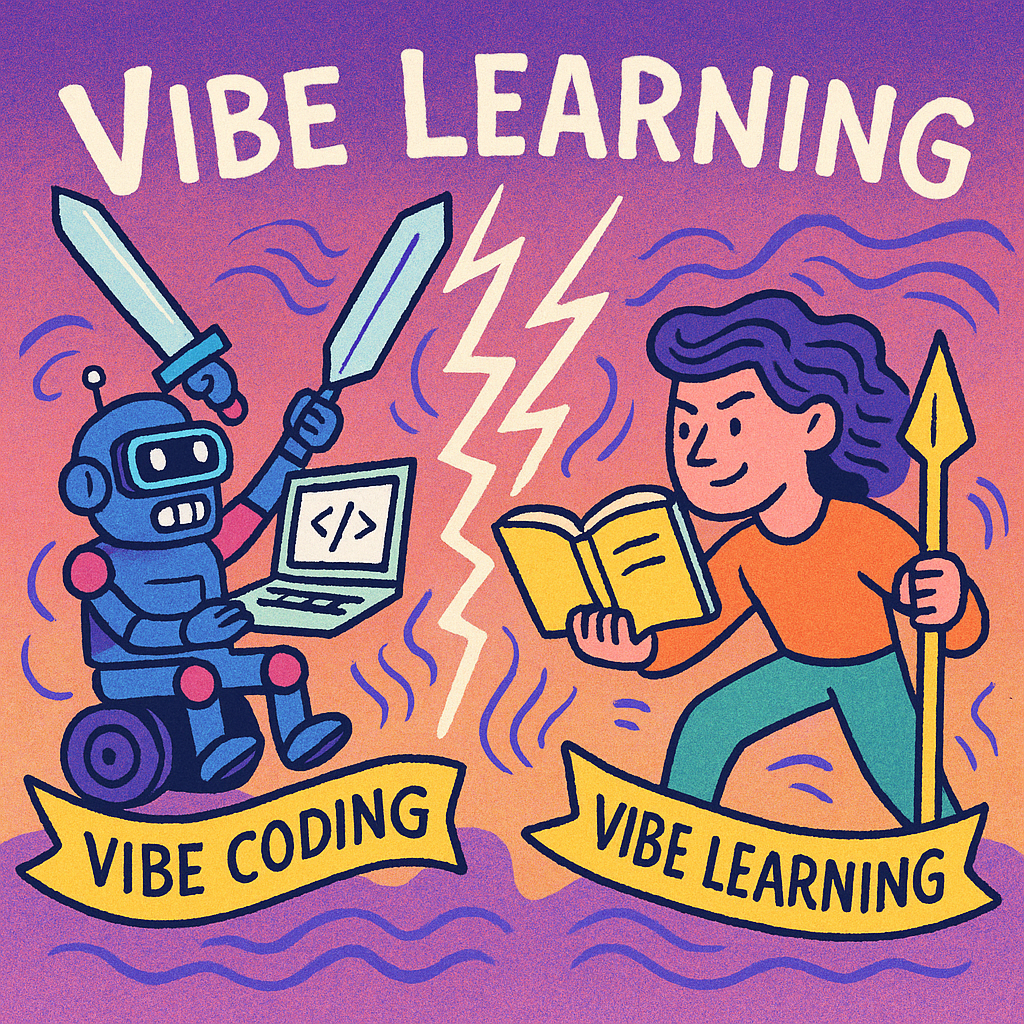Vibe Learning: A Twist on Vibe Coding to Revolutionize How We Learn

In recent weeks, vibe coding has been making waves across the developer world. Coined by Andrej Karpathy, the term refers to an experimental, AI-assisted approach where developers guide code generation using natural language, sketches, or high-level intent. The AI handles the boilerplate while the human shapes the creative direction.
A great recent example was showcased at the Microsoft Build 2025 conference during a session called VS Code, Live!. In that live event, which is available as a recording for registered viewers, four participants took on a playful challenge: use Visual Studio Code with AI tools like GitHub Copilot to create fan versions of the classic arcade game Frogger. Rather than typing out every line of code manually, they shaped their projects through conversational interactions with the AI, iterating and refining live on stage.
This shift in how we code sparks an exciting question. Can we apply the same principles to learning itself? That is where the idea of vibe learning comes in, using AI not just as a coding partner but as a personalized, intuitive learning companion.
What is Vibe Learning
Vibe learning is about using AI tools to interactively guide and shape the learning process. Instead of following a rigid curriculum or passively consuming content, learners engage directly with the AI, asking questions, exploring side topics, and refining their understanding in a fluid, natural way.
A Personal Reflection
I used to spend countless hours reading documentation, labbing solutions, scouring forums, watching training videos, memorizing key terms, and, maybe most importantly, searching the web for all the intricate details that pop up while studying. Whether it was a technical term, a company name, a solution, or some foundational concept I needed to understand more deeply, it all required time and detective work.
That traditional learning process still has value, but I am finding now that I work more and more directly with tools like ChatGPT, Microsoft Copilot, and I am sure others like Gemini are just as capable. I have ongoing conversations with these models, almost like talking to a trusted but sometimes skeptical expert. Someone I can rely on for detailed information, but someone whose answers I know I need to cross-check, test, and approach with a grain of salt.
It is important to watch for incorrect information, problematic responses, or gaps. I often ask for references, check the material, and test the AI’s accuracy before fully relying on it. But what has become clear to me is that with this vibe learning model, I am learning at a much faster pace. I am spending less time watching recorded videos that are easy to tune out or following long indirect learning paths, and instead I am drilling right into the information I need. It has become a far more engaging and efficient way to learn. I am still aware of the value in those traditional learning formats, but using AI tools has become a powerful accelerant in my learning toolkit.
A Closing Examples: Interview Prep & Microsoft Sentinel
As one example, when preparing for an interview, I might start by asking the AI some general questions about the company. How was it founded? Who are the key people involved? Are there references to anything they have written or presented that I could review? What acquisitions have they made? What is their financial performance or customer reputation like?
If you are curious about how vibe learning could reshape your own growth, I encourage you to give it a try. For a more technical example, you might ask something like: tell me about Microsoft Sentinel, how does it compare to other leaders in the same space, was this product acquired or developed by Microsoft directly, how hard is it to deploy, what should I know about Log Analytics and KQL, can you create a set of flashcards to help me memorize key terms, and what can you tell me about Sentinel pricing with reference URLs. By engaging in this kind of direct, conversational learning, you can explore topics faster, deepen your understanding, and build a far more dynamic and efficient path to mastery.